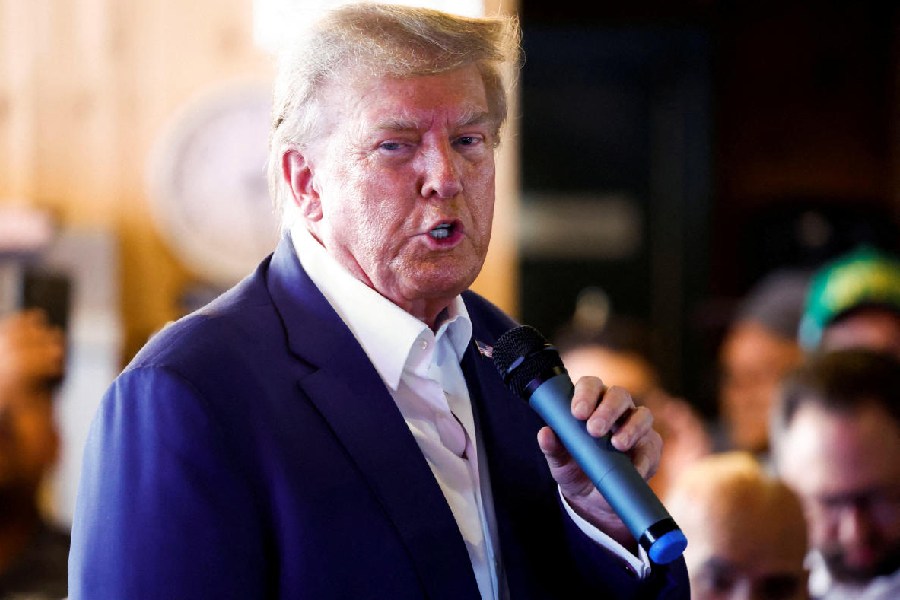The federal judge overseeing the classified documents prosecution of Donald Trump is expected to set a trial date on Friday, a crucial decision that could affect whether the former president and leading Republican candidate faces a jury this year on charges that he hoarded top secret records and hid them from government investigators.
The trial, in federal court in Fort Pierce, Fla., is currently set for May 20. But U.S. District Judge Aileen Cannon has already postponed multiple dates in the case and signaled that she would revisit the trial date during a pivotal hearing on Friday.
Ahead of the hearing, federal prosecutors on Thursday requested a July 8 trial date. Defense lawyers said there was no way to hold a fair trial this year at a time when Trump is looking to clinch the Republican presidential nomination but nonetheless proposed Aug. 12 as a possible date to begin jury selection.
The trial date has taken on added significance in light of the uncertainty surrounding a separate federal case in Washington charging Trump with scheming to overturn the 2020 presidential election. The Supreme Court said this week that it would hear arguments in late April on whether Trump as a former president is immune from prosecution, leaving it unclear whether that case — also brought by special counsel Jack Smith — might reach trial before the November election.
If the Florida classified documents case were to be postponed until after the election, and if the Washington election subversion case does not take place this year, that would mean voters would head to the polls without two blockbuster federal prosecutions — both alleging felony charges — being resolved by a jury.
The highly anticipated hearing is the first public one in months in the case. It comes as prosecutors have sought to lay bare the gravity of the allegations against Trump and amid signs of simmering tensions between Smith's team and Cannon on the question of whether names of potential witnesses in the case could be disclosed by the defense on the public docket.
Trump faces 40 felony counts in Florida, brought by Justice Department special counsel Jack Smith, that accuse him of willfully retaining after he left the White House dozens of classified documents at his Mar-a-Lago estate in Florida and then rebuffing government demands to give them back.
Prosecutors in recent court filings have stressed the scope of criminal conduct that they say they expect to prove at trial, saying this week in one brief that “there has never been a case in American history in which a former official has engaged in conduct remotely similar to Trump's.”
They allege, for instance, that Trump intentionally held onto some of the nation's most sensitive documents after he left office — only returning a fraction of them upon demand by the National Archives — and then urged his lawyer to hide records and to lie to the FBI by saying he no longer was in possession of them. He's also charged with enlisting staff to delete surveillance footage that would show boxes of records being moved around the property.
Trump and his lawyers have denied any wrongdoing. They asked Cannon last week to dismiss the case, citing among other arguments the same immunity theory now being considered by the Supreme Court.
Among the issues issue expected to be discussed at Friday's hearing is a dispute over whether defense lawyers can file publicly on the docket a substantially unredacted motion that would identify potential witnesses for the government and details of their expected testimony — information they were given by prosecutors under a protective order.
Cannon initially permitted the defence lawyers to disclose the witness names, but after prosecutors urged her to reconsider and said she had committed a “clear error,” she put the order on hold.











